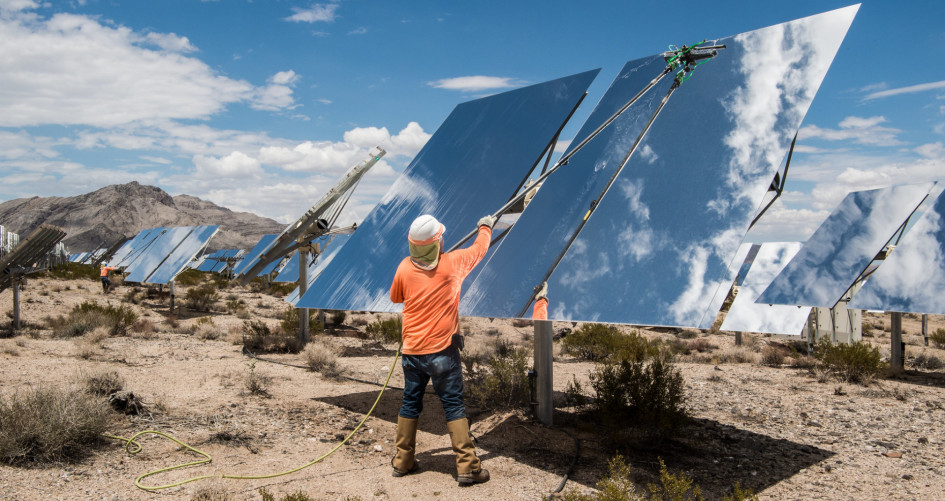UN Climate Change News, 5 June 2023 – As part of its increased efforts to boost the recognition and transparency of voluntary climate action initiatives and pledges, UN Climate Change has published a landmark ‘recognition and accountability framework’ for non-Party stakeholders, as well as its first implementation plan under the framework, which focuses on net-zero pledges from non-state actors.
“The purpose of the framework is to give enhanced recognition to non-Party stakeholders that are delivering on commitments, while pursuing transparency and helping to maximize the credibility of climate action pledges and plans by disclosing progress,” writes UN Climate Change Executive Secretary Simon Stiell in a message to Parties and observers today. “Through recognition, we can showcase best practices as well as identify the systemic challenges that must be overcome for credible climate actions aligned with the aims of the Paris Agreement.”
The UN Climate Change Recognition and Accountability Framework is a response to the invitation from Parties at COP27 for the secretariat to ensure greater accountability of voluntary initiatives. The first draft implementation plan under the framework responds to the urgent call from UN Secretary-General at COP27 to enhance the credibility of net-zero commitments. The first implementation plan will establish a new process to monitor and analyze voluntary net-zero commitments from non-state actors. The process will inform the outcomes of the global stocktake in 2023 and the update of countries’ nationally determined contributions (NDCs) in 2025. In delivering this analysis, UN Climate Change will also seek to bring transparency regarding the systemic impact of those who have not yet made credible net-zero commitments.
In order to further enhance the credibility of these commitments, the UN Secretary-General established a High-Level Expert Group, which released a report titled Integrity Matters. The report serves as a how-to guide for credible, accountable net-zero pledges and details what non-state actors need to consider through each stage of their progress towards achieving net-zero ambitions.
UN Climate Change’s first draft implementation plan focuses on bringing to life the recommendations of the Integrity Matters report.
The finalization of this implementation plan will be informed by an inclusive stakeholder engagement process, known as the ‘Integrity Matters Implementation Dialogue.’ The Dialogue will enable discussions on the systems and processes needed for recognition and accountability of net-zero pledges, plans, and progress reporting. The process gets underway with consultations at the Bonn Climate Change Conference next week and ends in September this year, with the co-chairs of the Dialogue delivering recommendations to UN Climate Change’s Executive Secretary on the processes and systems to take this work forward.
Since the adoption of the Paris Agreement in 2015, the world has seen an increasing number of net-zero commitments by non-state actors, including through credible, existing initiatives including those who are members of Race to Zero. Since the launch of the Race to Zero Campaign by the High-Level Champions in 2020, the number of non-state actors with commitments to halve emissions by 2030 and reach net-zero by 2050 at the latest has significantly expanded.
Race to Zero will continue to mobilize best-in-class non-state actor leaders in all corners of the world, identifying and addressing barriers to action, and supporting the identification of policies needed to transition the global economy to net zero.
As requested by the UN Secretary-General, UN Climate Change is working to enhance its Global Climate Action Portal to be a single source of information of climate action pledges and plans by non-State actors. In addition to ensuring public availability of information UN Climate Change will also establish governance and policy systems to provide assurance regarding the quality of that publicly accessible data.
“The full roll-out of this framework in the coming years, including additional implementation plans for other voluntary commitments and initiatives, is an essential yet daunting task, but one we take on gladly,” said Stiell.
Initial results of the UNFCCC secretariat-led process will be announced prior to, or at, COP 28 and will be updated on an annual basis thereafter to provide public assurance on progress made, recognize credible leadership in climate action and inform Parties’ actions to address systemic barriers to the required transition.
More information
Read the joint statement from UN Climate Change's Executive Secretary and High-Level Champions to Race to Zero partners.
UN Climate Change Unveils Plan to Showcase Leadership and Enhance Accountability
5 June 2023
Article
